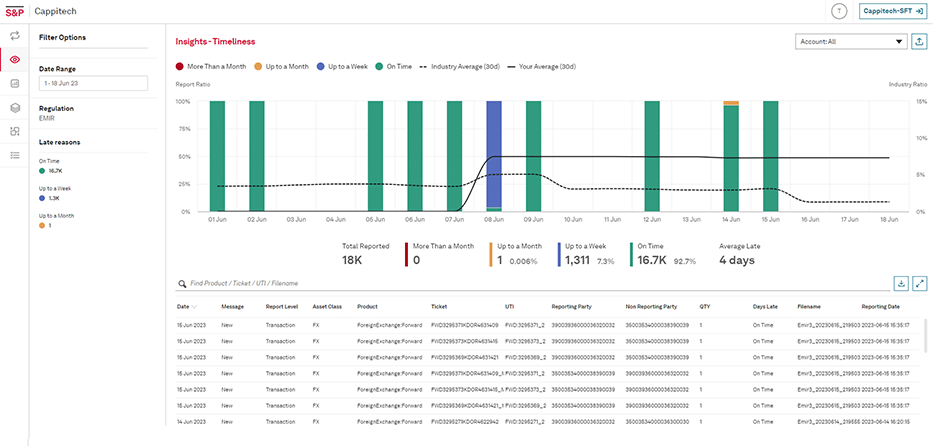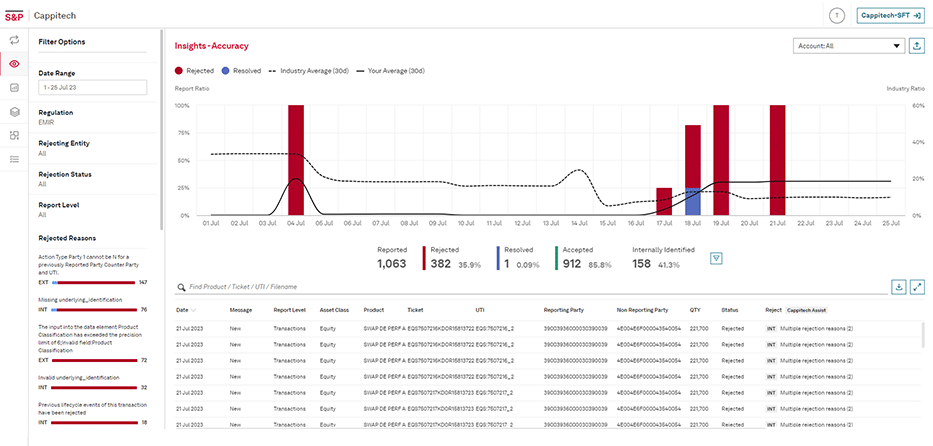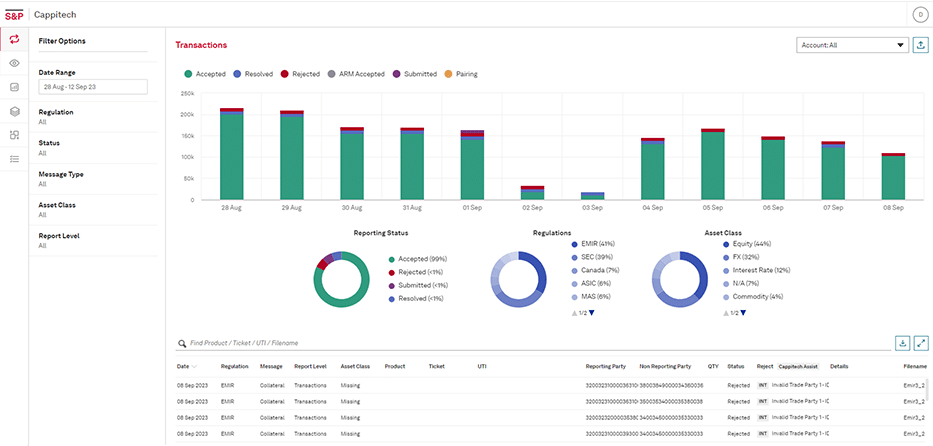
CFTC Reporting Solution
Derivatives trade reporting was first introduced in the U.S. as part of the implementation of the the Dodd-Frank Wall Street Reform and Consumer Protection Act (The Dodd-Frank Act) in 2010. In 2013, reporting requirements for OTC derivatives kicked in for hundreds of financial institutions. Reporting includes trades, positions and valuations and for many firms this obligation creates significant challenges, particularly around the timeliness of the submissions (real time), accuracy and the operational model of supporting the ever-changing requirements.
Even though the U.S. is a single-sided (one side reports for both counterparties) regime, determining which trades are reportable, and by whom can be very complex and costly for firms to build and maintain. Is the trade executed on SEF or DCM, cleared or uncleared, tie-breaker and waterfall logic, these are just some of the considerations firms have to implement in order to achieve regulatory compliance under the Dodd-Frank reporting rules.
We can help makes sense of the reporting obligations and provide you with peace of mind knowing our solution is trusted by over 550 customers around the world.
How Cappitech can solve your CFTC reporting obligations
What is CFTC reporting?
What is CFTC reporting?
Dodd-Frank was one of the largest and most comprehensive financial regulations post the 2008/2009 Financial Crisis. One of the main objectives was to restore public confidence and to prevent another financial crisis from occurring.
Title VII of the Commodity Exchange Act (CEA) grants the CFTC regulatory authority over swaps, except for security-based swaps, which are regulated by the SEC. CFTC is tasked setting the rules for the implementation of the Dodd-Frank Act and for providing enforcement.
Under the Dodd-Frank Act, a swap includes all financially settling swaps and options, physical forwards and physical options.
OTC derivatives swaps need to be a reported to a registered Swap Data Repository (SDR).
Which financial institutions are in scope for CFTC reporting?
CFTC reporting is a single sided reporting regime and reporting counterparty is determined by the hierarchy of the counterparties. Any entity that trades over the counter derivatives in the U.S. would need to determine if they have reporting obligations
Which products need to be reported under Dodd-Frank?
All swaps across Interest Rates, Credit, Equity, FX and Commodity derivatives
When does CFTC rules rewrite come into effect?
December 05, 2022
Which party is responsible for reporting the transaction?
- For swaps executed on SEF or DCM must report to a SDR ‘as soon as technologically practicable’ —
- For off-facility swaps, one party to the swap (reporting party) to report data as determined by the following reporting party hierarchy (unless otherwise agreed by the parties prior to the execution of the swap):
- If one party is an SD and other party is an MSP, SD is the reporting party
- If no party is an SD but one party is an MSP, MSP is the reporting party
- If both parties are SD or MSPs, parties to agree who is the reporting party
- If neither is an SD or MSP, but one party is a financial entity, financial entity is the reporting party
- In all other cases, parties to agree who is the reporting party
What are the Real Time reporting requirements?
Swap transaction and pricing data are generally reportable ‘as soon as technologically practicable’ after execution. As per industry standard, a trade is reported within 15 minutes of execution. — Part 43 provides for time delays for the public dissemination of data of “block trades” and large notional off-facility swaps







